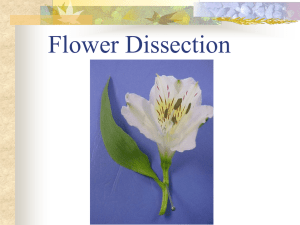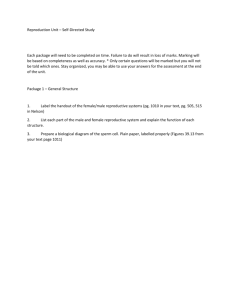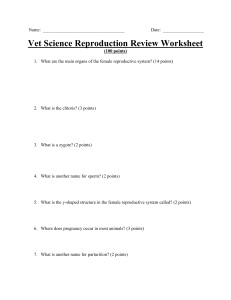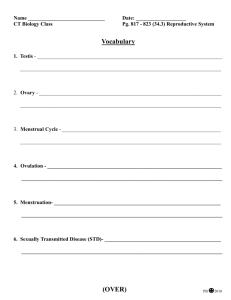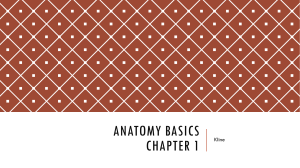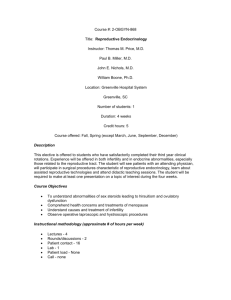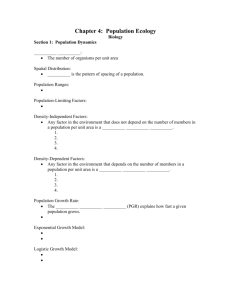File
advertisement
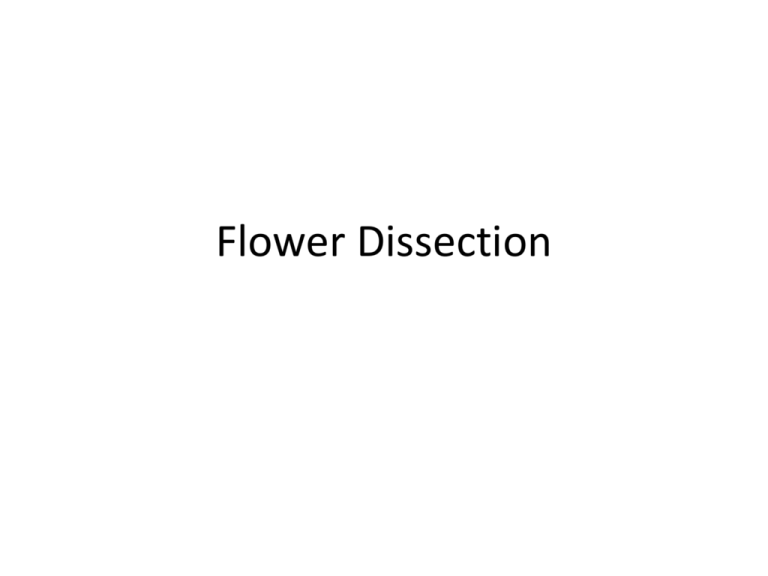
Flower Dissection The Flower • The flower is the reproductive unit of some plants (angiosperms) • Include petals, sepals, one or more carpels (the female reproductive organs), and stamens (the male reproductive organs). Female Reproductive Organs • The pistil is the collective term for the carpel(s) • Each carpel includes an ovary (where the ovules/eggs are produced), a style (a tube on top of the ovary), and a stigma (which receives the pollen during fertilization) The Male Reproductive Organs • Stamens are the male reproductive parts of flowers. A stamen consists of an anther (which produces pollen) and a filament • The pollen are the male reproductive cells Types of Flowers • Some flowers (called perfect flowers) have both male and female reproductive organs • Some flowers (called imperfect flowers) have only male reproductive organs or only female reproductive organs. Procedure • In groups of 3, each student obtain 2 different flowers • Gently remove the sepals and petals with your hand or tweezers and place them on your table • Draw diagrams of what you see • Locate the stamens and identify the filament and anther • Locate the pistil/carpel and identify the stigma, style, and ovary • Draw diagrams of what you see • Carefully remove the stamen and pistil and arrange the parts according to the diagram on page 4 of dissection handout
